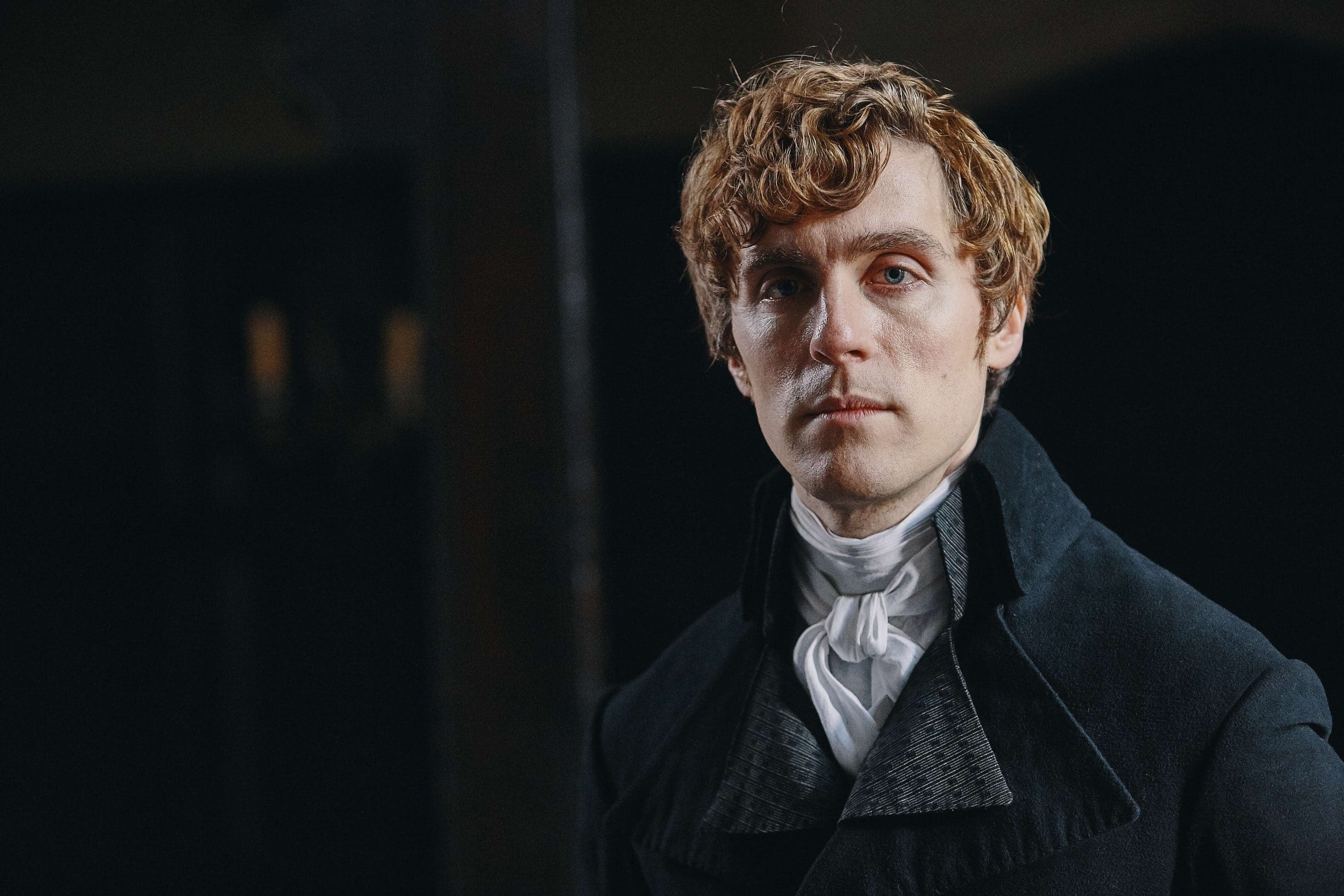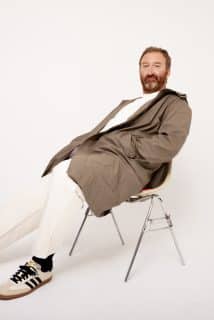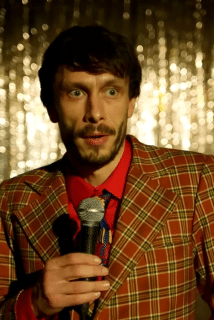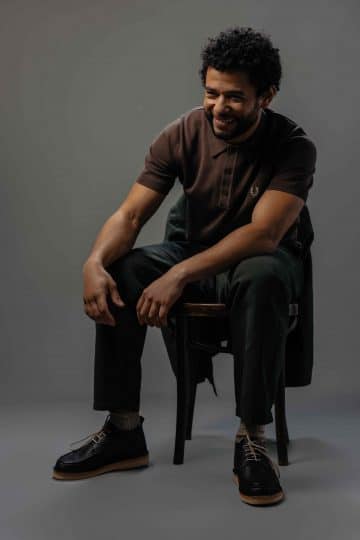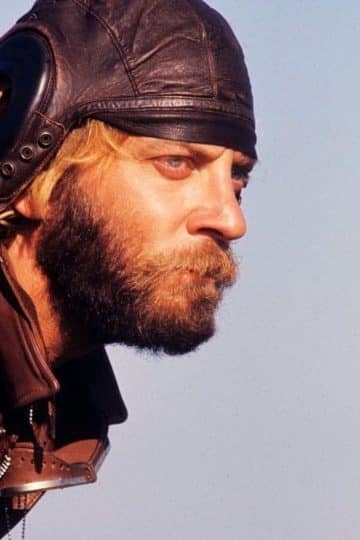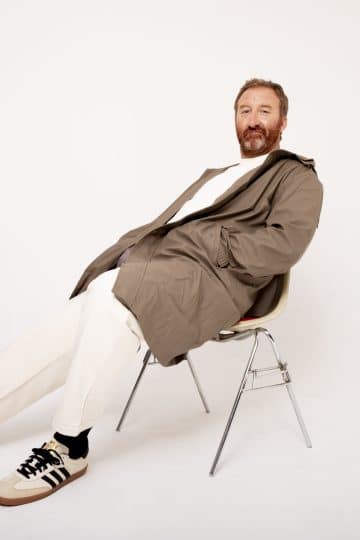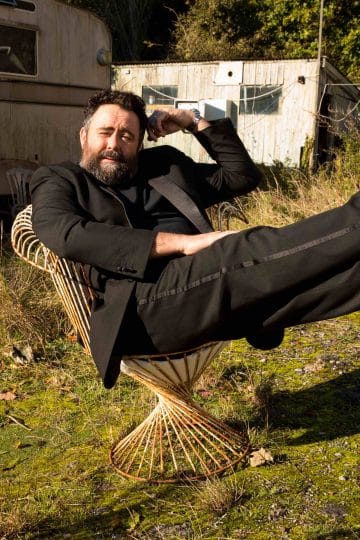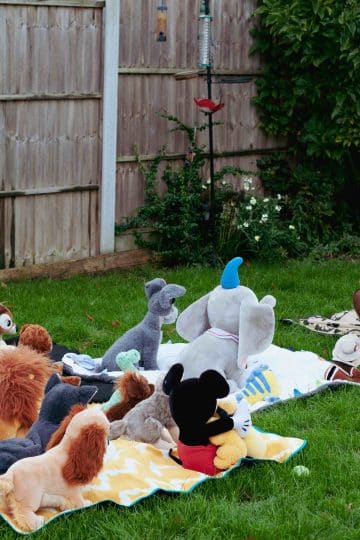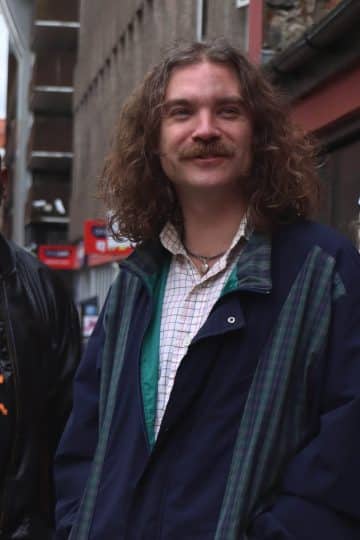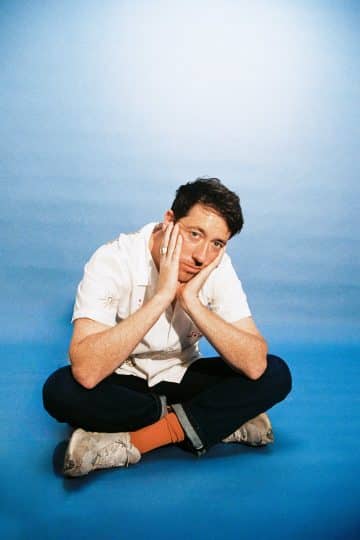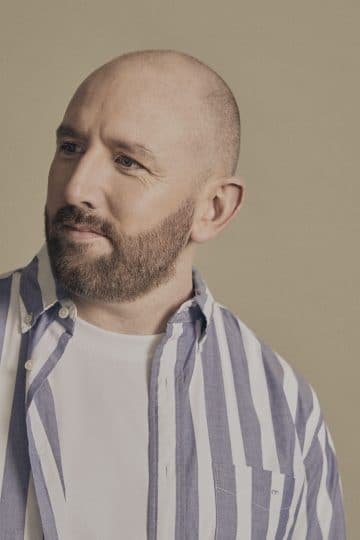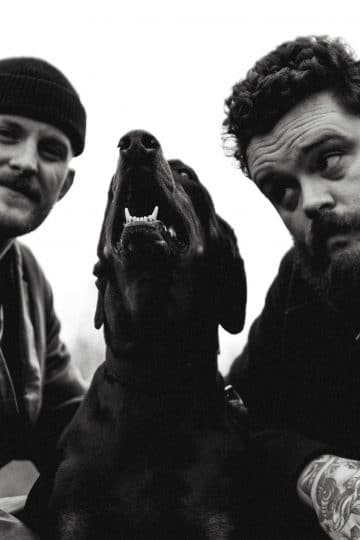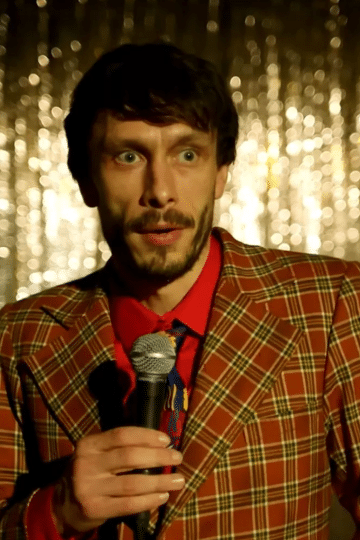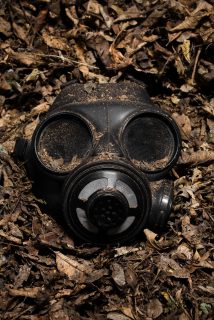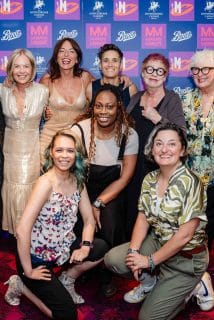Jack Farthing on Poldark’s final series…
Culture
Ahead of the final series of Poldark, Jack Farthing - who plays George Warleggan - reflects on the incredible success of the show, and what comes next.
Poldark is over. No more Sunday night intrigue. No more brooding in costumes. No more topless scything…But wait, we’re getting ahead of ourselves – it’s not over yet, the last season is starting this weekend in fact, and the mood should be one not of loss but of celebration. That’s according to Jack Farthing anyway, and he should know. As the man who plays the villain of the piece, George Warleggan, he has been there for all five series of the show as the deliciously rotten counterpoint to Aidan Turner’s lead character, a schemer, a dark dealer, and also in Jack’s hands, an all too human figure too, making him a character which viewers love to hate and hate to love. The Book of Man caught up with Jack as he contemplates the end of the show and life out of period costume (for a while at least).
It’s Poldark’s last series how are you feeling now that it’s coming to an end?
Yeah it is weird. We’ve filmed it for six months of the year for five years, and when you do a big show like that which a lot of people watch, it does become a big part of your identity as an actor. But it’s a celebratory end to the show not a sad one – it’s been a great pleasure to make it and I’ve made a lot of friends on the show and I’ve enjoyed playing the part, and I’ve enjoyed being part of the story. So its a celebratory feeling really, rather than pure devastation!
What was the last week of filming like, did you have a party or anything?
We did have a wrap party but it ended up being a week before the end of filming because we were running over, typically. The last weeks tend not to be calm and easy, it’s more like ‘we need to do this, we need to get this, we need to change this!’ So there was a lot to do up until the last minute. And also people finished at different times. There wasn’t a grand final scene that we all did to finish. But the end was celebratory we were happy to have achieved it.
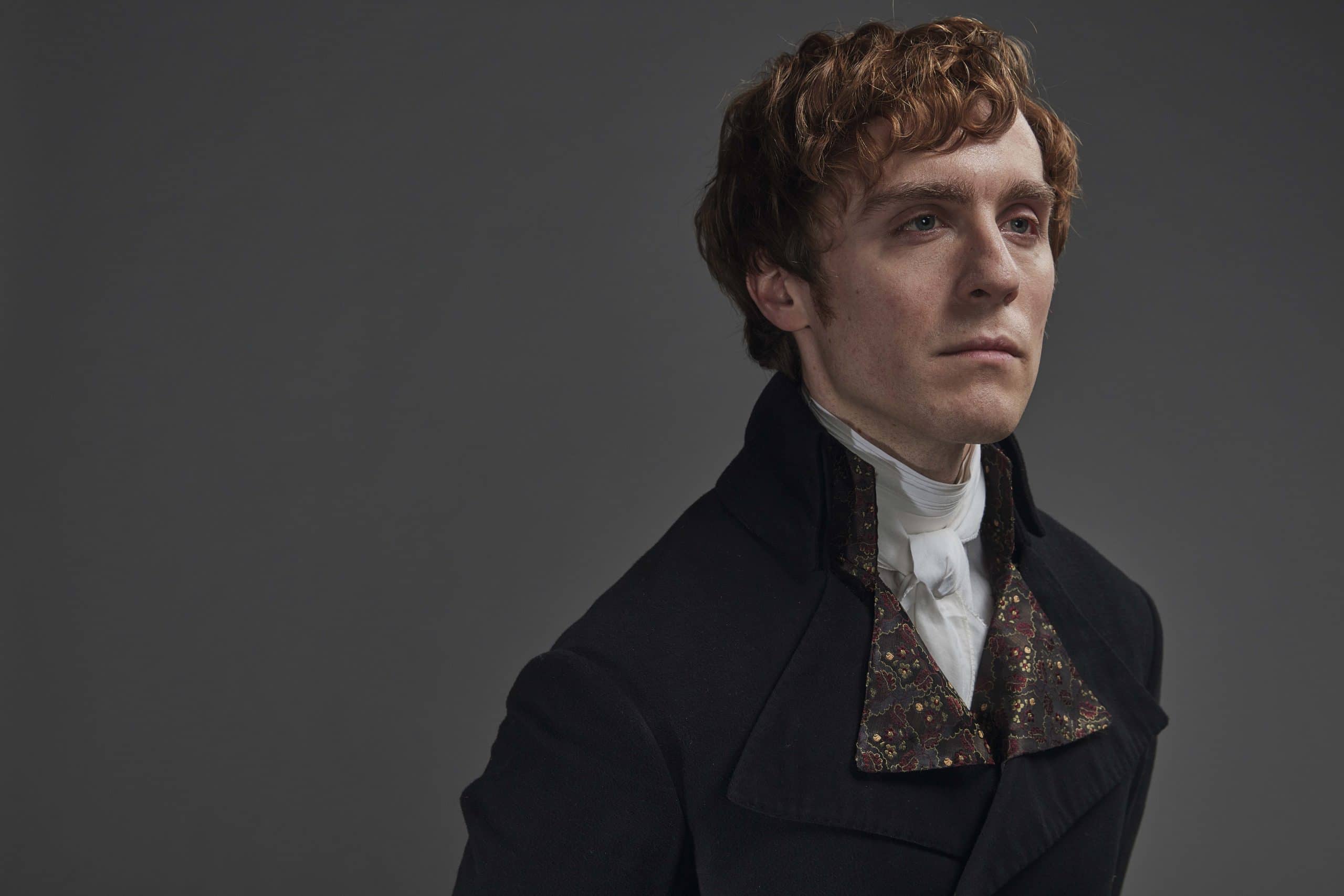
Can you remember your first weeks of involvement in the show, how you felt?
I was terrified. I remember very clearly going up to do our screen tests, a few of us went up together. I didn’t know anyone and screen tests can be funny because often you start off looking completely different to how you end up. We had all these barmy wigs and stuff which eventually fell away. We didn’t know at that point that we’d be doing it for five years, we thought it’d be one job then that would be it. So it’s amazing that’s it’s gone on as long as it has.
Did you have have any sense when you were first making it that’d it’d be massive?
I don’t think you ever know. It’s always a surprise when something does very well, because there’s no formula – it’s totally down to an audience deciding what they like. Somehow, somewhere there’s a decision collectively made by people that a show is worthwhile, and we were lucky to be on the right end of that. The way these things work is you’re commissioned year by year so you’re never quite sure. After series one they never go right we want you for five; sometimes they do that in the States but I don’t think they do here. It’s such a massive commitment by the BBC and they judge it year by year, so there’s never a sense of: right, we’ve nailed it. You’re just hoping that people keep watching and you can keep making exciting material that people want to spend their Sunday nights with.
When the series took off, did you then at least know you had an audience and had interest and be reassured about that?
Yeah but also that then adds pressure, because you want to keep them. When you’ve got no-one you’re free to make what you make, and see how it goes. When something goes well there is a sense that you want to top that. You can’t just trot it out, you want to create something that retains interest and excitement. But alongside that pressure, by that point we were establishing a team of us that worked well together. Plus it was a family vibe and that’s a real pleasure to work in that kind of environment. It cuts out a lot of the unknowns if you’re working with friends and people you know, who can support you and look after you and you can look after them.
Is it a good laugh on the set?
Totally. I’ve made such good friends, and when your’e working with your friends and particularly when you’re dressing up in these costumes and pretending to be very serious about things, you can really see the funny side of it. It’s been a lot of fun to make it and the fact we all got on has totally elevated the work. You feel supported. There’s nothing worse than being in a situation like that where you don’t feel supported. When people don’t look outside of themselves – that’s hard, and I have been in that kind of situation, which I found very difficult. On the flipside, working with people you have a lot of love and time for is a wonderful thing.
As the villain, do you get grannies shouting at you in the street?
No grannies shouting sadly. That would have been good. I’ve been lucky enough to have had nothing but happiness – people come and say hello. There’s a ‘love to hate’ vibe definitely, but maybe people like the layers of that character. They think they hate him and then maybe they feel a bit sorry for him. I’ve been so lucky with the character I was given, I really feel like he’s gone somewhere and is going somewhere too. It’s appealing to people that as well as his default behaviour, he’s capable of surprising you.
Did you find you have more room to explore those kind of layers in long form TV?
Yeah definitely, it’s satisfying to have more time. On a film or a one off you’re jamming a lot into a couple of hours. With Poldark, t even across 8 or 10 episodes in the series you really feel like you’ve got room to hold things back, and then show one thing and then another, and not worry about those ambiguities, or inconsistencies, because that’s what we’re like as human beings. You have to present a human who is capable of behaving out of character. Which is really exciting and interesting. Debbie Horsfield our wonderful writer was totally down with showing these people as inconsistent human beings as opposed to cut outs who you know how they tick. As an actor its like reading a long book, not a short story – you can grow and morph and change which is really great.
Did you return to the original books again and again for reference? It’s interesting how some of the themes, like the impact of business on communities, chimes with our current times.
I think good characters and good writing does tend to chime, because it tends to be based on universal things that we deal with always as human beings. I was definitely keen on going back to the books. They’re very particular. They are really detail-heavy – on historical context, on character, on the psychology of these people, so when you’re looking for material to take, from it’s like a gold mine. You can pick what you want and leave what you don’t want, and it can provide ideas and stimulate you and teach you. I totally trusted Winston Graham [who wrote the novels] and his view on the historical context because he was a historian as well, and he loved researching those books. It was a beautiful little handbook for us to get your head around the period. I went back to them a lot.
But then this last series that’s about to be on is a bit more Debbie than Winston, which was nice. It meant I wasn’t looking at the novels so much, I was going off her words.
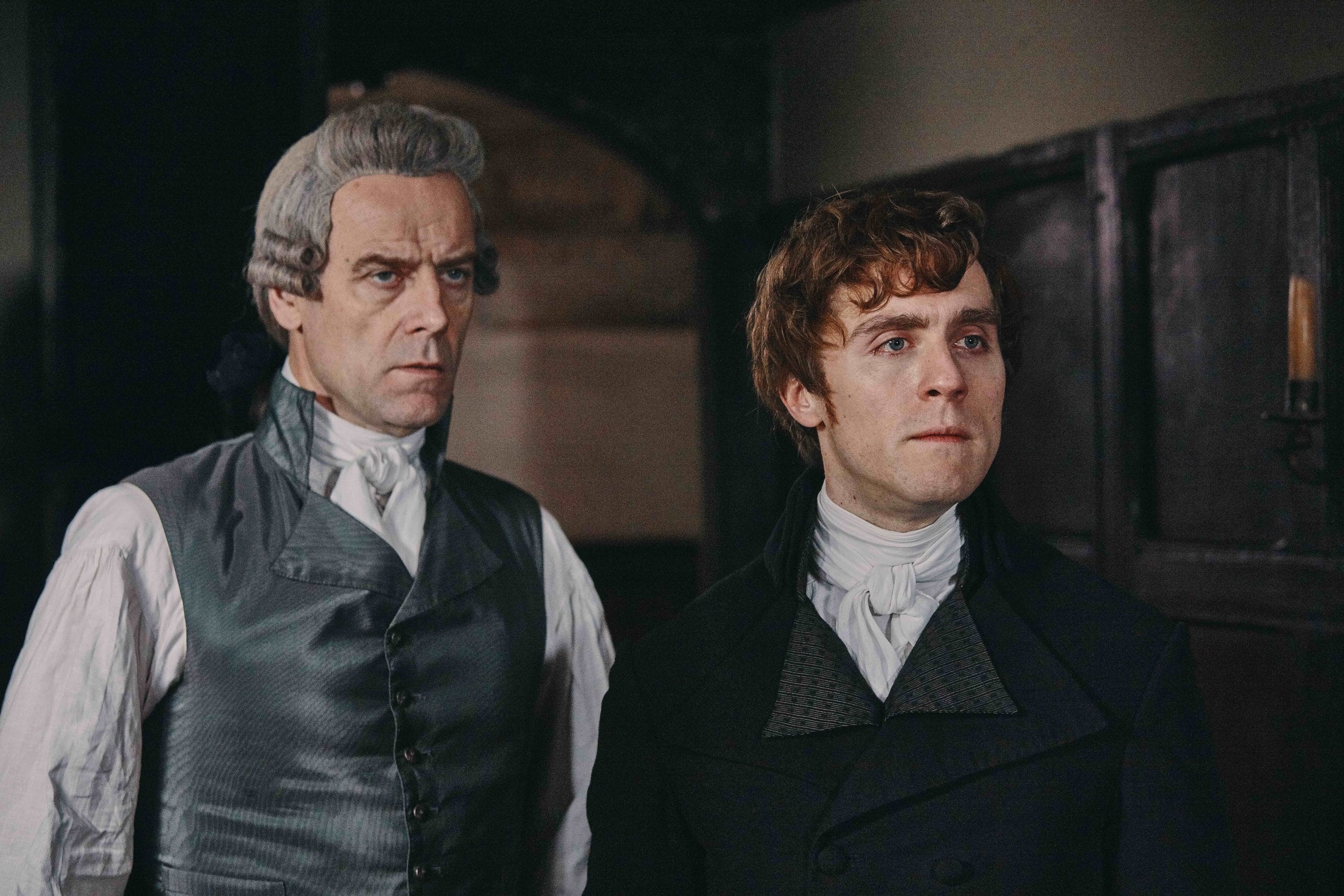
Did you notice yourself improving as an actor as the series’ went on?
It’s an interesting question because long form telly is a good arena for an actor to try something new. If it really doesn’t work you know that’s only one scene and you can try other things and feel more confident. When you have a film with ten scenes, they are gold. You don’t want to let any of them go, you really want them to land and hit. That can be harmful when you over think them, you over prepare, you put too much pressure on, and you don’t let them breathe. With our schedule you might have 6 pages to do a day, you’ll have scene after scene, particularly in the studio. It’s heavy but it does a nice thing because it puts you in the moment as opposed to putting you in your preparation. You relax a bit more and find new stuff as a result of it. I think the process of being in a long form show like this has definitely done good things for me as an actor. Although at the end of the six months I do feel like I’ve been using one set of muscles and I’m aching to use a different set.
How did Aidan handle things when the topless scything scene went massive?
Honestly he’s handled all that amazingly. He’s an actor so I imagine its quite a strange thing. I’ve never had it. To be the focus in that way. You come on the show as an actor, but I think he handles it and he doesn’t take it too seriously. He’s very relaxed and easy with it, it doesn’t seem to affect him at all. And in a way it’s been a blessing because it meant people paid attention That’s one of the reasons why people watched the show for the first time and were pulled into it beyond that. I don’t think he’d ever curse that.
Do you have a favourite scene from the series?
That’s hard. So many. I love the scenes with Caroline and I love working with her – being horrible to each other was a great joy. I’ve done some lovely stuff with Luke Norris who plays Dr Dwight. He’s a very good mate and we haven’t had that much through the years so it was good to work with him. And then I loved the scenes where its just me talking with Aidan, which are full of character and the past. This series has some stuff where I really relished the challenge, so I’m looking forward to see that – although I have no idea what it looks like and what they’ve kept! But the process of doing it was enjoyable.
Do you watch the show when it’s out then, to see what they’ve kept?
A lot of people refuse to watch their stuff but for me, to improve and to keep working on this skill I’m trying to get better at, I have to watch it. Otherwise it’s like painting a picture and not looking at the picture. But the choices that are made after you’ve shot the scene are totally out of your hands. You don’t know when they’re going to come, you don’t know what they’re going to cut, you don’t know how much music they’re going to lay on, you don’t know any of that. But I think you have to have a look. Well I do, I have to see. And often it’s mortifying. But sometimes its not, sometimes it’s satisfying, you say ok that worked or it wasn’t what I expected but what they’ve done there is really interesting; I’m not the focus of that and that’s right. When you’re surrounded by a good team, good editors in post, good directors making decisions, you put yourself in their hands.
Can we talk about The ABC Murders with John Malkovich which you were in last Christmas – that’s already been seen as a classic, how was it making it?
That was an amazing bunch of people. Working with John was a total treat. He is amazingly interesting, talented guy to spend time with. And I’m a big fan of [writer] Sarah Phelps and what she’s done with those Agatha Christies, so it was great to be a small part of one of them.
Were you watching John Malkovitch, picking things up from him?
Yeah totally, I always watch everyone, I think there’s a lot to be gained from that, unless what you’re doing requires you to detach from people or keep a mad level of personal private focus. I watched him a lot. He knows what he’s doing. He’s very generous, very kind and caring. I remember shooting with him and seeing how he was very keen that everyone was allowed time and for it to run smoothly. It wasn’t all about him at all. He was part of an ensemble. But at the same time he comes with a huge expertise and intelligence and knowledge so he would throw ideas out and work with Alex the director and the DP and come up with ideas. He’s an unexpected face to see on an Agatha Christie show on the BBC in some ways, but he was totally invested in it.
Who are you acting heroes? Who’s career do you admire?
I have so many and it changes. I like people like Joaquin Phoenix who jump between genres and are character leading men. They’re character actors really but they clearly relish doing very different stuff, and thrive with those challenges.
What do you have coming up after Poldark?
A film out in the autumn called Official Secrets which is a Gavin Hood directed film with Keira Knightley playing a whistle blower called Katharine Gun who tried to stop the Iraq war in 2003 by releasing information she had received at GCHQ about the government spying on the UN security council to try and rig a vote. That’s an amazing and beautiful story that not many people know much about. Matt smith plays the journalist and it has people in it like Ralph Fiennes, Rhys Ifans, Matthew Goode, a wonderful crew of British actors that I leapt at the chance to be part of. I play Keira’s mate at GCHQ who she sits opposite to. It’s a lovely, contemporary relaxed character, very different to what I’d been doing. And it’s an important story.
Is it a good time to be an actor in the UK?
Yeah I think so. Obviously a huge amount of TV and films are being made now, and as an actor that’s really exciting because opportunities present themselves more readily.
How you look after yourself personally in your business where there’s a lot of pressure and competition?
I think we actors put pressure on ourselves – there’s a lot of failure in not getting something you want or it not turning out as you want it to. And there’s a lot more out of work actors than working actors. But I have been incredibly lucky, there’s no doubt about it. I haven’t had a lot of sitting around desperately wanting to do something that I’m not being allowed to do. That has been very nice.
I don’t know how I look after myself – I’m doing work that I’m inspired by and excited by and that’s what looks after me. It’s a huge privilege in the first place to make the thing you love most in the world your career, and then being allowed to keep doing it when lots of people who are extraordinarily talented are not. I really am very lucky in that sense and it continues to excite and inspire me. Maybe I haven’t needed too much looking after – lucky me!
The new and final series of Poldark begins this Sunday at 9pm on BBC1.

Join The Book of Man
Sign up to our daily newsletter for interviews, stories and event tickets.
Trending
Masculinity 5 days ago
Sport 1 week ago
Health 1 week ago

Join The Book of Man
Sign up to our daily newsletters to join the frontline of the revolution in masculinity.



